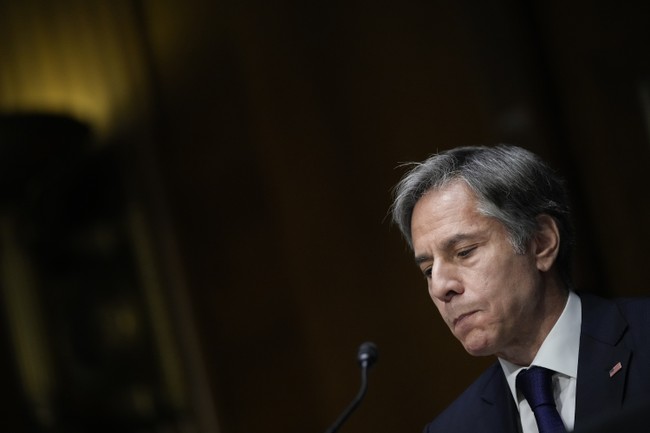Secretary of State Antony Blinken’s final press conference on Thursday turned into a scene of chaos, reflecting the tumultuous period of the Biden administration. The press conference was intended to highlight a tentative ceasefire agreement between Israel and Hamas, a development Blinken celebrated despite its fragile nature.
The proposed ceasefire aims to halt hostilities temporarily and secure the release of several hostages held by Hamas in Gaza. This deal, which still awaits approval from Israeli Prime Minister Benjamin Netanyahu’s Security Cabinet, was achieved after prolonged negotiations. The conflict has persisted for 15 months following Hamas’ unexpected attack on Israel on October 7, 2023, which resulted in over 1,200 deaths.
Give Me News Podcast
Reports indicate that the Biden national security team, working in collaboration with advisers from President-elect Donald Trump, played a significant role in facilitating this agreement. Jake Sullivan, Biden’s national security adviser, and Brett McGurk, his top Middle East adviser, coordinated with Mike Waltz and Steve Witkoff from the Trump team to reach this outcome.
Trump has expressed urgency, stating that significant repercussions will occur if the hostages, including three Americans, are not released by January 20th, when he assumes office.During Blinken’s final press conference, journalists questioned the administration’s delay in brokering this agreement. When asked about potential changes in his approach to Israel, Blinken highlighted the Israeli government’s broad support from its citizens following the traumatic events of October 7, which influenced U.S. policy decisions.
The press conference took a dramatic turn when journalists Max Blumenthal and Sam Husseini began vocally protesting against Blinken, accusing him of permitting genocide in Gaza. Husseini’s outburst, calling Blinken a “criminal” and demanding to know why he wasn’t facing charges at The Hague, led to his removal by security personnel. He accused the administration of restricting press freedom after being told his questions would not be answered.
Blumenthal, representing Grayzone News, also expressed his frustration, questioning why military actions continued despite a potential agreement in May and lamenting the destruction of homes in Gaza. Both journalists’ emotional reactions resulted in their forcible removal from the press conference. Their behavior sparked debate about the role of journalism and activism, with some viewing their actions as unprofessional.
The incident was captured on video and widely shared on social media. Husseini’s removal was documented in a tweet by journalist Willy Lowry, while Blumenthal posted footage of his confrontation, labeling Blinken as the “Secretary of Genocide.”
This chaotic scene echoes other recent disruptions by activist groups, drawing attention to the increasingly contentious relationship between journalists and political figures. Critics argue that Blinken and the Biden administration contributed to the current media landscape, marked by aggressive questioning and activism.
The tumultuous end to Blinken’s tenure reflects broader challenges faced by the Biden administration’s foreign policy efforts. The situation remains precarious, with the ceasefire agreement between Israel and Hamas already facing potential setbacks. This development highlights ongoing complexities in Middle Eastern diplomacy and the significant role of international mediation.
As the Biden administration concludes, the focus shifts to the incoming Trump administration, which has signaled a strong stance on foreign policy issues. Trump’s team, already involved in the ceasefire negotiations, is poised to address these challenges with a fresh perspective.
The press conference underscored the contentious nature of contemporary journalism, blurring the lines between reporting and activism. Blumenthal and Husseini’s actions illustrate the tensions between journalists seeking accountability and government officials managing complex international issues.
In light of these events, the role of the media in shaping public discourse and influencing policy remains a topic of debate. The balancing act between holding power to account and maintaining professional decorum continues to challenge journalists and policymakers alike.
Despite the chaos, the tentative ceasefire marks a significant diplomatic achievement, offering a glimmer of hope for stability in the region. The release of hostages would be a crucial step towards de-escalation, underscoring the importance of continued diplomatic efforts.
As the transition of power approaches, the international community watches closely, hoping for a resolution that addresses the needs of all parties involved. The Biden administration’s final days are marked by a mix of achievements and unresolved challenges, setting the stage for the incoming administration’s approach to global diplomacy.

